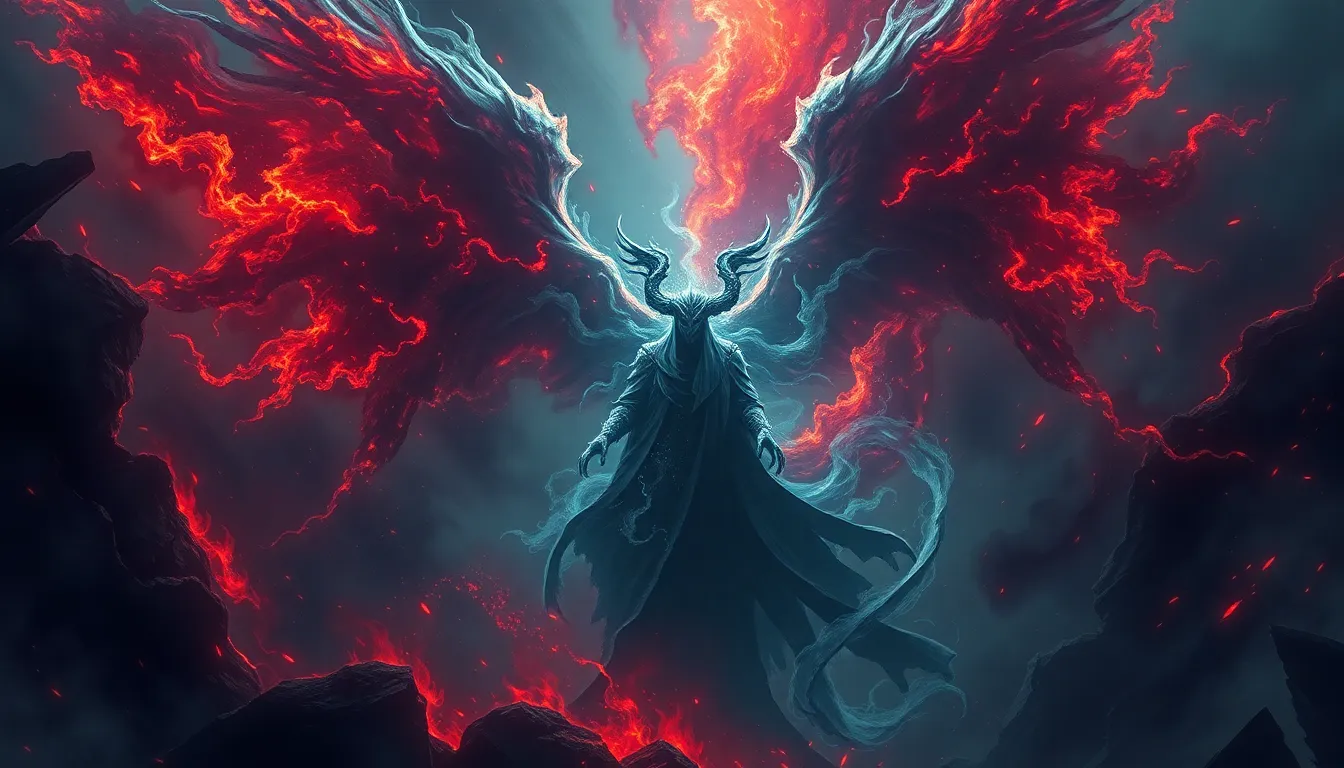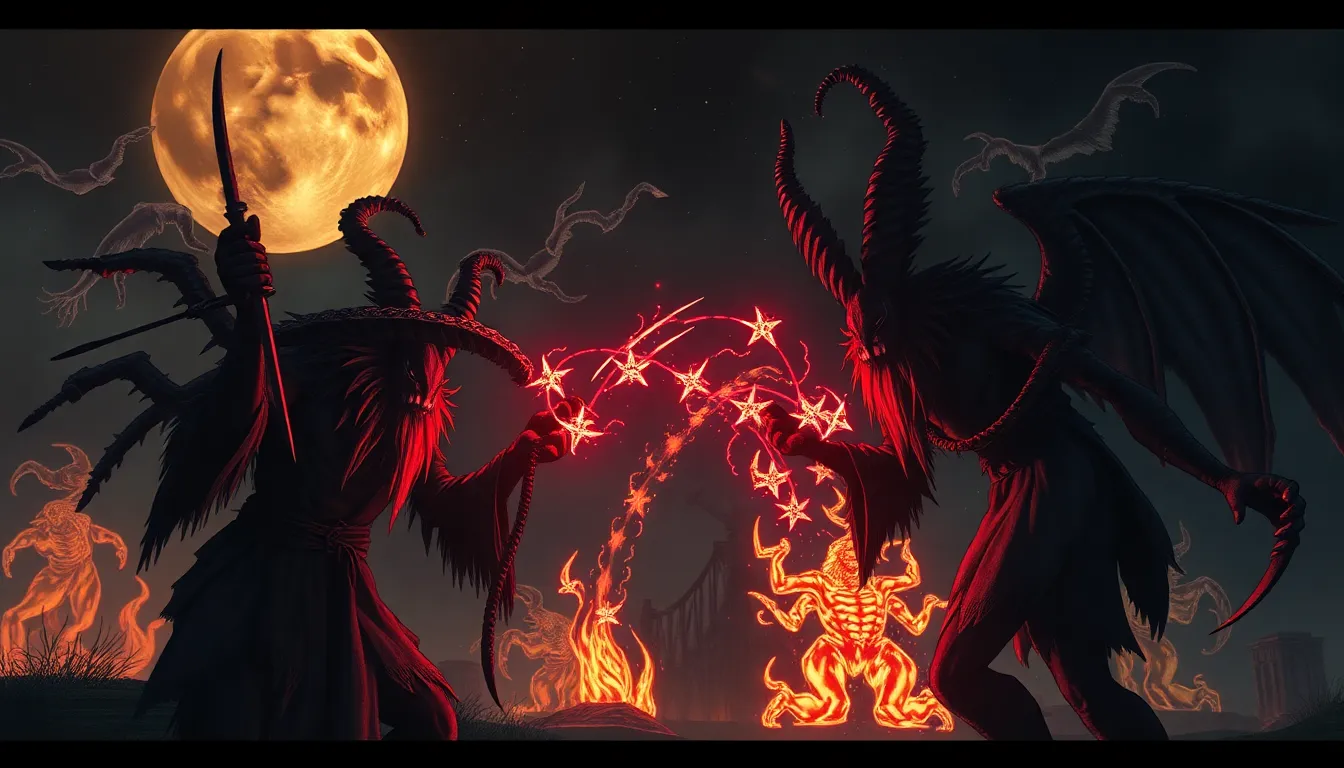The Wrath of the Divine: Tales of Punishment Through the Ages
1. Introduction: The Concept of Divine Wrath
Divine wrath refers to the anger or retribution of a deity in response to the actions of humans. This concept exists across various cultures and religions, often serving as a moral guide that emphasizes the consequences of one’s actions. The historical significance of divine punishment is profound, as it reflects humanity’s understanding of justice, morality, and the relationship between the divine and the mortal.
2. Ancient Civilizations: Divine Retribution in Mythology
Many ancient civilizations incorporated the notion of divine punishment into their mythologies, portraying gods as enforcers of moral order. In Greek mythology, for instance, the gods frequently punished mortals for their hubris.
- Zeus and Prometheus: Prometheus, who defied Zeus by giving fire to humanity, was condemned to eternal punishment, exemplifying the consequences of challenging divine authority.
- Osiris and Set: In Egyptian mythology, Set’s betrayal of Osiris and the subsequent judgment of the dead by Osiris highlight themes of justice and retribution.
3. Religious Texts: The Role of Divine Justice in Major Religions
Divine punishment is a recurring theme in the sacred texts of major religions. These narratives often illustrate the consequences of sin and the necessity of divine justice.
- The Great Flood: In the Book of Genesis, God sends a flood to cleanse the earth of wickedness, demonstrating a drastic form of divine retribution.
- Sodom and Gomorrah: The destruction of these cities due to their immorality serves as a warning against sin.
- The Plagues of Egypt: These calamities, sent as punishment for Pharaoh’s refusal to free the Israelites, illustrate the power of divine justice in the face of oppression.
4. The Middle Ages: Theological Interpretations of Divine Wrath
During the Middle Ages, the Christian worldview significantly influenced concepts of sin and divine punishment. The belief in a wrathful God was prevalent, and many calamities were interpreted as signs of divine displeasure.
- The Black Death: Many viewed this devastating plague as divine punishment for the sins of humanity, reinforcing the connection between morality and suffering.
- The Inquisition: The Church’s efforts to root out heresy were often justified as a means of enacting divine justice on those deemed sinful.
5. Literature and Art: Representations of Divine Retribution
Literature and art have long depicted the theme of divine wrath, illustrating moral lessons and the consequences of immorality.
- Dante’s Inferno: In this epic poem, Dante explores the consequences of sin through vivid depictions of hell, where sinners receive punishments that reflect their earthly actions.
- Milton’s Paradise Lost: This work delves into the fall of man and the ensuing divine retribution, emphasizing the complexities of free will and divine justice.
Renaissance art also captured divine punishment, with pieces like The Last Judgment by Michelangelo illustrating the final judgment and the eternal consequences of earthly deeds.
6. Cultural Variations: Understanding Divine Punishment in Different Societies
Cultural interpretations of divine punishment vary significantly across societies, reflecting differing worldviews and spiritual beliefs.
- Eastern Perspectives: In Hinduism, the concepts of karma and dharma dictate that moral actions lead to positive outcomes, while immoral actions result in suffering, often viewed as a form of divine punishment.
- Western Perspectives: In contrast, Western religions often emphasize the direct intervention of a deity as a response to human actions. Indigenous beliefs also incorporate supernatural punishment, often manifesting through natural disasters or misfortunes as signs of displeasure from the spirit world.
7. Modern Context: The Relevance of Divine Wrath Today
In contemporary society, the interpretation of divine punishment continues to evolve. While some adhere to traditional beliefs, others approach the concept with skepticism.
Natural disasters, such as hurricanes and earthquakes, are frequently perceived by some as divine retribution for societal sins. This belief can lead to:
- Heightened religious fervor in the aftermath of disasters
- Increased dialogue around morality and ethics in society
8. Psychological and Sociological Perspectives on Divine Punishment
The belief in divine retribution plays a significant role in shaping societal norms and individual behavior. Fear of divine punishment can:
- Encourage moral behavior and adherence to societal laws
- Promote community cohesion through shared beliefs in divine justice
Conversely, it can also lead to:
- Increased anxiety and guilt among believers
- Polarization within communities as differing interpretations of morality arise
9. Criticism and Skepticism: Challenging the Notion of Divine Retribution
Philosophical arguments have long challenged the concept of divine punishment. Critics argue that:
- The existence of suffering contradicts the notion of a benevolent deity.
- Secular interpretations of justice and morality provide alternative explanations for suffering.
These perspectives encourage a dialogue about the nature of suffering, justice, and moral responsibility, often leading to a more nuanced understanding of human experience.
10. Conclusion: The Enduring Legacy of Divine Wrath in Human Culture
The concept of divine wrath has shaped human culture and belief systems for millennia. From ancient myths to modern interpretations, the idea of divine punishment continues to resonate, reflecting humanity’s ongoing struggle with morality, justice, and the divine.
As society evolves, so too does the understanding of divine retribution, reminding us of the complexities of human nature and the moral frameworks we construct to navigate our existence.



